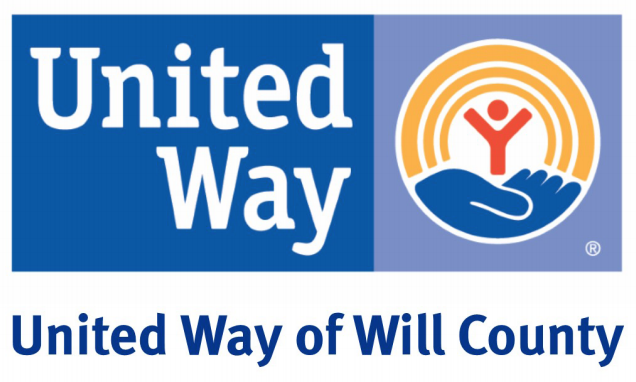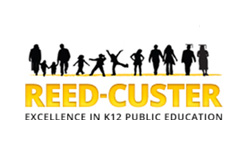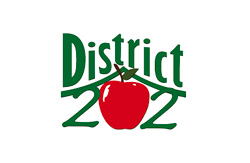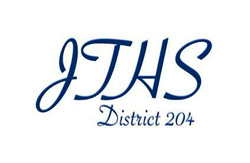Resilient Youth Initiative
Number of Educators Trained to Date
Number of Partnering Schools
Number of Student Manuals Distributed
Resilient Youth programs in public and private schools across Will County
The United Way of Will County was recently named the recipient of a federal grant which will allow them to bring the Resilient Youth program to interested public and private schools across the county at no cost for the purchase of curricular materials or training. Resilient Youth is a research-based program which provides students with coping skills aimed at reducing stress and building resilience while helping them to reach their full potential.
What is the Resilient Youth Program?
For over 25 years, the Resilient Youth program has provided educators and families with research-based methods to promote wellness and reduce stress in young people of all ages. The Resilient Youth program can support K-12 students who are dealing with both the normal everyday stress of childhood and adolescence while also providing tools to help students who may be having some challenges with anxiety or depression. For all students, Resilient Youth can significantly improve health and quality of life by equipping students with skills to help them deal with stress—in a social situation, in a classroom or on an athletic field or performance hall. Resilient Youth is a research-backed program–developed by clinicians from the Harvard Medical School, Child Resiliency Program at Massachusetts General Hospital and the Benson-Henry Institute. Since its inception, the program has been well received by thousands of educators as well as by children of all ages from diverse backgrounds. At its core, Resilient Youth encompasses a comprehensive, yet easy to implement curriculum, that will provide your students with coping skills to manage stress, build resilience, and reach their full potential.
What are the goals of the program?
Just as athletes who work hard at practice improve in sports, students who benefit from understanding how to engage in relaxation techniques are good at responding to and recovering from the stress which is a part of everyone’s life. By understanding these techniques, students can:
- Reflect on their emotions and better control their impulses
- Cope with emotions such as fear, frustration, and anger
- Relate to others in more empathic, compassionate ways
- Reduce stress and anxiety
- Improve academic performance
- Develop better work habits
- Improve memory
- Increase self-esteem
How is the curriculum structured?
There is no single model for how schools deliver the Resilient Youth curriculum. The great thing about the program is that each district can decide how best to offer this experience to meet the needs of their students while best fitting it into their existing schedule and curriculum. This teach-the-teacher program provides school staff with mind/body skills and provides pathways for delivering these interventions directly to students. Once trained, staff members are able to teach these skills to students throughout their careers. The program works with schools to customize Resilient Youth Initiative the training to the needs of their particular students and school. Schools also have the opportunity to receive on-going support and additional training.
Some schools incorporate Resilient Youth into homerooms or individual subjects like physical education, health, English or/and advisory period. Others have members of the student support team go into classes to deliver the curriculum. The choice is completely left to the district to determine what structure best works for their individual learning community.
In all cases, the educators delivering the curriculum will bring coping skills and life management tools into the school environment to help students better manage daily stress, and positively impact their academic performance, health and well-being. The curriculum includes the following:
- 6 core prevention-based resiliency lessons which are 30-45 minutes each are at the center of the curriculum. In addition, there are 6 supplemental lessons which schools can choose to implement to reinforce the core lessons and provide students with additional coping strategies. Teachers are given time to plan for these lessons as part of the training program.
- In addition to these sessions, the program provides a multitude of short, 2 to 3-minute activities that are incorporated into the school day between each session to reinforce the concepts learned and help students build a consistent practice.
- All members of the school community are encouraged to take advantage of teachable moments which can link the lived experiences of students to the lessons they are learning as part of the curriculum. What better time to discuss the stress of tests and reflect upon tools which can help students perform at their best than before and after an important test? The examples of how to link these lessons to the everyday experiences of students are limitless.
- Districts may also choose to include an overview of the Resilient Youth program as part of their outreach to parents and members of their community.
- A survey of trained staff will be utilized to assess the effectiveness of the program.
How is this professional development structured?
The Resilient Youth Teach-the-Teacher program brings relaxation response-based coping skills and life management tools into the school environment to help educators and students better manage daily stress, and positively impact student’s academic performance, health and well-being. The program is an interactive, 10-hour training that is scheduled in coordination with participating schools. Training is offered to groups of up to 25 educators.
In addition to an overview of the program, the training allows time for teachers to come together to plan for the delivery of the program in a way that best meets the needs of their students. This is not a one-size-fits-all curriculum. Teachers have the opportunity to customize their plans to meet the unique needs of their students and incorporate Resilient Youth into their content areas and other Social-Emotional Learning initiatives.
Learn more about the Resilient Youth Program, free training and instructional materials
Please complete this form if you are a K-12 educator in a public or private school in Will County who is interested in learning more about the Resilient Youth Program and the free training and instructional materials available through the United Way of Will County.
What Educators Are Saying …
“As for my experience with resiliency this year, I am recognizing more students than I realized who could make use of the principals. I would like to see all programs offer something in their curriculum which reflect resiliency and its importance in their chosen career path.”
Jeannine Marco RN, M Ed
Assistant Principal Student Services
Wilco
“As a school social worker, I am so grateful and excited to share this with my colleagues and students. The lessons are simple and meaningful. The training was a valuable experience. Highly recommend!”
Marie Goulet, LCSW
Lead Social Worker, New Lenox School District #122
“The Resilient Youth program focuses on valuable life skills. The curriculum, the instructor, and the techniques provided for instruction are not only well organized but also relevant and easy to quickly implement. Kudos to the RY team.”
Danielle Valente
Assistant Superintendent for Teaching and Learning,
Reed Custer Community Unit School District #255
Educator Feedback on RY Professional Learning
“I liked the opportunity to practice the skills. I believe my co-workers could also benefit from this. The mini techniques were excellent, easy to implement.”
“Resilience needs to be taught early in the education experience and reinforced at every level.”
“Extremely relevant topic! Enjoyed the video clips, stats and personal stories as they related to the subject.”
“The mini relaxation techniques really helped with stress I’m currently feeling. I can see them being useful to my students as well.”
“I think most helpful is all the resources and examples on how to implement these. I also think the lesson on negative thoughts is great for kids.”
“The manuals we were given are extremely helpful in developing lessons.”
“I thought everything was presented in a relatable way and kept us engaged.”
Resilient Youth Implementation Team
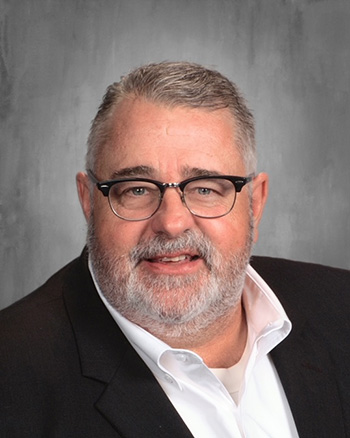
Dr. Pete Sullivan
Read Bio
Dr. Pete Sullivan is an Assistant Professor of Educational Leadership at the University of St. Francis. He recently retired as the Assistant Superintendent of the Will County Regional Office of Education. Prior to this, Pete served in leadership roles (superintendent, assistant superintendent for curriculum and instruction, and principal) at school districts in the Will County area after beginning his teaching career in Chicago. Beyond his professional experiences, Pete and his wife Chris are proud parents of four young adults and enthusiastic grandparents of their two grandsons. They are longtime residents of Lockport. Pete is excited about the opportunity to continue to support the students of our region through the Resilient Youth Initiative while working with outstanding educators throughout Will County.

Tom Klisiewicz
Read Bio
As Founder and President of Smart Health Wellness and Performance, Tom Klisiewicz is dedicated to teaching youth and teens practices that build their resilience, strengthen their mental health and help them achieve success in all aspects of their lives. He has been an educator for over 25 years and is a Certified Professional in Talent Development (CPTD). Tom has a Bachelor of Science Degree in Secondary Education from the University of Illinois at Urbana-Champaign, is a guest faculty member at Harvard Medical School, and is a certified instructor of the Massachusetts General Hospital and the Benson-Henry Institute’s Resilient Youth program.

Hannah Klein, Ph.D.
Read Bio
Hannah Klein, Ph.D., began her career in the field working for the City of Philadelphia where she focused on abuse and violence prevention and intervention strategies for the city. This work inspired her to attend graduate school at Temple University pursuing her Ph.D. in Criminal Justice. Upon receiving her Ph.D., she began working at Lewis University as an Assistant Professor. Her research interests continue to focus on prevention and intervention with special attention on the role of adversity and trauma in outcomes. Dr. Klein has developed several research partnerships with local nonprofits providing evaluation services to ensure the preventive actions are successful.
Resilient Youth Program In the News
United Way of Will County Leading Resilient Youth Initiative for K-12 Students
The United Way of Will County is leading an effort to bring the Resilient Youth program to participating schools across the region with the support of two grants the organization recently received. Resilient Youth is an evidence-based curriculum developed 25 years ago by researchers from Harvard Medical School and clinicians from the Child Resiliency Program at Massachusetts General Hospital and the Benson-Henry Institute. The Resilient Youth curriculum includes cognitive strategies and mind body techniques that students can use to regulate their emotions, such as breathing, mindfulness, and self-reflection. The program is designed to be able to complement and support other ongoing programs within schools to promote student wellness. Historically, students in the Resilient Youth program have achieved better control over their impulses, management of their negative emotions, and development of their empathy and compassion for others.
Smart HWP to Lead Resilient Youth Mental Health Initiative for Will County Students 2023-24
Smart Health, Wellness and Performance (Smart HWP) will offer the “Resilient Youth” program to all interested school districts of Will County, Illinois for the 2023-24 school year with the potential to reach over 26,000 students in grades K-12 with coping and stress management skills to develop emotional resilience in times of adversity.
Criminal Justice Students Assist In Assessing Resilient Youth Program
Lewis University students enrolled in Dr. Hannah Klein’s Criminal Justice Research Method course will be helping to evaluate a new mental health resiliency program launching in Will County school districts this fall, Resilient Youth.
The Resilient Youth program will potentially reach over 26,000 students in grades K-12, representing communities across Will County, Illinois with daily coping and stress management skills to develop emotional resilience in times of adversity. The program is made possible through the United Way of Will County, which received $884,000 in funding in February for a Substance Abuse and Mental Health Services Administration initiative from the Congressional Directive Spending Project Services Administration of Congressman Bill Foster (D-IL). Will County provided additional funding through an allocation of the American Rescue Plan Act funds.
